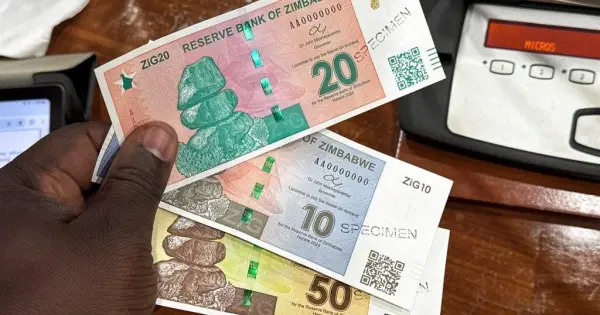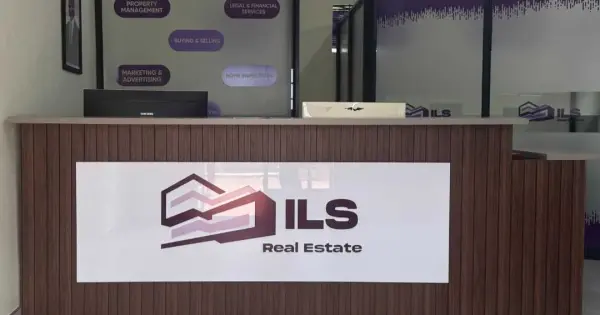Finding the right property type can feel overwhelming. Whether you're a first-time buyer or seasoned investor, townhouses offer an attractive middle ground between apartments and standalone homes. This analysis is perfect if you're considering townhouse investments or purchases in Zimbabwe's evolving property market.
Townhouses currently average $250,000 across Zimbabwe, making them accessible alternatives to traditional houses while offering more space than apartments. In 2025, Zimbabwe's townhouse market shows strong growth potential, particularly in Harare where demand continues to outstrip supply.
As Zimbabwe's largest property platform with over 7,000 active listings and data from 150+ real estate agencies, Propertybook has tracked significant changes in townhouse preferences and pricing. Our database reveals that 3-4 bedroom townhouses dominate the market, representing over 80% of available units.
This analysis covers current market pricing, bedroom configurations, regional differences, investment potential, and practical considerations for townhouse ownership in Zimbabwe.
Understanding Zimbabwe's Townhouse Market
Townhouses fill a crucial gap in Zimbabwe's housing market. They provide more privacy than apartments while remaining more affordable than standalone houses. Current market data shows 448 townhouses valued at around $93.2 million total across the country¹.
The average price per square meter sits at $970, making townhouses competitive compared to similar-sized standalone properties. Most townhouses range from 100-200 square meters, offering practical living spaces for growing families.
Harare dominates the townhouse market with 406 townhouses for sale in Harare around $270,000 each. Comparably, there are around 25 townhouses for sale in Bulawayo at a more affordable $150,000 median¹. This price difference reflects the economic activity concentration in the capital city.
Regional pricing variations create opportunities for different investment strategies. Harare townhouses command premium prices due to proximity to business districts and superior infrastructure. Bulawayo offers entry-level investment opportunities with potential for appreciation as the city develops.
Bedroom Configuration Analysis
Townhouse sizes directly impact pricing and rental potential. Zimbabwe's market shows clear patterns across different bedroom categories.
1-2 bedroom townhouses represent the entry level at $144,000 average pricing. These units appeal to young professionals and couples starting their property journey¹. Rental yields often exceed larger units due to lower purchase prices and consistent tenant demand.
3-4 bedroom townhouses dominate with 180+ units averaging $270,000. This category attracts families and represents the sweet spot for most investors¹. These properties balance affordability with rental income potential, typically generating $800-1,500 monthly rent.
5+ bedroom townhouses cater to the luxury market with 35+ units averaging $480,000¹. While offering higher absolute rental income, these properties require larger initial investments and target a smaller tenant pool.
The bedroom distribution reflects Zimbabwe's demographic needs. Most households require 3-4 bedrooms, explaining why this category commands the largest market share.
Regional Investment Opportunities
Location determines both purchase price and rental income potential. Understanding regional dynamics helps investors make informed decisions.
Harare Market Dynamics
Harare's 406 townhouses average $270,000, reflecting the city's economic importance¹. Prime areas like Borrowdale, Chisipite, and Mount Pleasant command premium prices due to established infrastructure and proximity to business centers.
The capital city offers the highest rental yields but requires larger initial investments. Monthly rentals for townhouses for rent in Harare North range from $1,200-3,500 for quality 3-4 bedroom units in these desirable neighbourhoods.
Harare's market benefits from consistent demand driven by employment opportunities and international business presence. However, higher prices mean longer payback periods for investors focused on cash flow.
Bulawayo Value Proposition
Bulawayo's 25 townhouses average $150,000, offering attractive entry points for new investors¹. The city's lower cost base translates to higher percentage yields despite lower absolute rental amounts.
Monthly rentals typically are around $500 for comparable properties, but the lower purchase prices often result in superior yield calculations. Bulawayo suits investors prioritizing cash flow over capital appreciation.
The city's industrial base provides stable tenant demand, though growth potential remains limited compared to Harare's dynamic economy.
Townhouse Investment Analysis
Successful townhouse investment requires understanding both financial returns and practical considerations. Zimbabwe's market offers distinct advantages and challenges for property investors.
Financial Performance Metrics
Monthly rental income typically ranges $600-4,500 depending on location and property size. Management costs consume 8-12% of gross rental income, including maintenance, security, and administrative expenses.
Gross rental yields often range 6-10% annually, comparing favorably to bank deposits and inflation rates. However, investors must account for vacancy periods, maintenance reserves, and property appreciation potential.
Capital appreciation varies significantly by location. Harare properties typically appreciate 3-7% annually in stable economic conditions, while Bulawayo shows more modest growth patterns.
Operating Cost Considerations
Homeowners Association (HOA) fees represent ongoing expenses often overlooked by new investors. These fees cover shared amenities, security, maintenance, and insurance for common areas.
Typical HOA fees range $50-150 monthly depending on complex amenities and management quality. Luxury developments with swimming pools, gyms, and 24-hour security command higher fees but attract premium tenants.
Property taxes and insurance add additional costs. Municipal rates vary by location but typically represent 1-2% of property value annually. Comprehensive insurance costs $300-800 yearly for standard townhouses.
Property Characteristics and Features
Modern Zimbabwe townhouses incorporate features addressing local market needs and climate conditions. Understanding these characteristics helps buyers make informed decisions.
Standard Features
Most townhouses include private gardens, essential for families with children and pets. Garden sizes typically range 50-150 square meters, providing outdoor space without extensive maintenance requirements.
Multi-level living separates social and private areas effectively. Ground floors usually contain living areas, kitchens, and guest facilities, while upper floors house bedrooms and family spaces.
Shared complex amenities often include swimming pools, playgrounds, and clubhouses. Security features encompass perimeter walls, controlled access, and often 24-hour guard services.
Infrastructure Adaptations
Zimbabwe's infrastructure challenges drive specific townhouse features. Solar power systems address electricity supply issues, while water storage tanks ensure consistent supply during municipal shortages.
Backup power systems, including solar installations and generator connections, add significant value. Properties with reliable power supply command rental premiums and attract quality tenants.
Water storage capacity typically ranges 2,500-5,000 liters per unit. Developments with borehole access provide additional security against municipal water disruptions.
Explore current townhouse listings on Propertybook.co.zw to compare features and pricing across different developments.
Maintenance and Management Requirements
Townhouse ownership involves shared responsibilities and individual maintenance obligations. Understanding these requirements prevents unexpected costs and conflicts.
Individual Responsibilities
Unit owners maintain interior spaces, individual gardens, and personal utility connections. This includes plumbing, electrical systems, appliances, and interior finishes within their specific units.
Garden maintenance remains individual responsibility despite HOA oversight of common landscaping. Owners must maintain lawns, plants, and irrigation systems within their designated areas.
Air conditioning, security systems, and utility meters require individual maintenance and replacement. These costs typically range $200-500 annually per system depending on usage and age.
Shared Responsibilities
HOA manages common areas including roads, lighting, security systems, and shared facilities. Professional management companies typically handle these responsibilities for monthly fees.
Swimming pool maintenance, security services, and perimeter maintenance fall under shared costs. Complex-wide insurance, professional management, and reserve fund contributions require monthly contributions.
Dispute resolution and rule enforcement require active HOA participation. Owners should understand complex regulations before purchasing to avoid future conflicts.
Target Market Analysis
Different townhouse categories attract distinct buyer and tenant demographics. Understanding these markets helps investors choose appropriate properties and marketing strategies.
First-Time Buyers
Young professionals and couples often choose 2-3 bedroom townhouses as starter homes. This demographic values location convenience, modern amenities, and manageable maintenance requirements.
First-time buyers typically finance 70-80% of purchase prices, making affordability crucial. Properties under $200,000 attract the largest buyer pool in this category.
Marketing to first-time buyers emphasizes security, community amenities, and proximity to employment centers. Social media and online platforms effectively reach this tech-savvy demographic.
Family Market
Growing families require 3-4 bedroom townhouses with adequate storage and outdoor space. This market segment prioritizes school proximity, safety, and community features.
Family buyers often have children, making playground access, safe neighborhoods, and reputable schools essential factors. They typically stay longer, reducing investor vacancy rates.
Properties targeting families should emphasize practical features like storage space, family rooms, and child-friendly environments. Word-of-mouth referrals strongly influence this market segment.
Investment Buyers
Property investors seek townhouses offering optimal rental yields and appreciation potential. This sophisticated market analyzes financial returns, management requirements, and exit strategies.
Investment buyers often purchase multiple units, creating opportunities for bulk sales and long-term developer relationships. They prioritize locations with strong rental demand and consistent appreciation.
Marketing to investors emphasizes financial performance, management ease, and market data. Professional presentations including yield calculations and comparable sales attract serious buyers.
Financing and Legal Considerations
Townhouse purchases involve specific financing options and legal requirements. Understanding these elements streamlines the acquisition process and prevents costly mistakes.
Financing Options
Most banks offer townhouse mortgages with 70-80% loan-to-value ratios for qualified buyers. Interest rates typically range 20%-25% in Zimbabwe, depending on market conditions and borrower qualifications.
International buyers face additional requirements including proof of income, tax compliance, and foreign exchange approvals. These processes extend transaction timeframes but remain manageable with proper planning.
Some developers offer rent-to-own arrangements or graduated payment plans. These alternatives help buyers with limited initial capital access townhouse ownership opportunities.
Legal Requirements
Property transfers require legal representation for title searches, contract review, and registration processes. Conveyancing fees have recently changed, affecting transaction costs.
HOA documentation review remains crucial before purchase. Buyers should understand complex rules, financial obligations, and management structures to avoid future surprises.
Title insurance protects against ownership disputes and registration errors. While not mandatory, this protection proves valuable given Zimbabwe's evolving property registration systems.
Market Outlook and Trends
Zimbabwe's townhouse market shows positive long-term trends despite short-term economic challenges. Understanding these patterns helps investors make strategic decisions.
Demand Drivers
Urban population growth continues driving housing demand, particularly in Harare and surrounding areas. Young professionals entering the workforce seek modern, convenient housing options.
Infrastructure improvements including new roads, shopping centers, and business parks enhance townhouse location values. Areas like Borrowdale Village benefit from ongoing commercial development.
International investment interest increases as Zimbabwe's economy stabilizes. Foreign buyers often prefer townhouses due to security features and professional management systems.
Supply Constraints
Land availability limits new townhouse development in prime locations. Established areas like Mount Pleasant and Chisipite have minimal expansion opportunities, supporting price stability.
Construction costs remain elevated due to imported materials and skilled labor shortages. These factors limit speculative development and support existing property values.
Regulatory requirements including environmental approvals and infrastructure contributions slow new project delivery. Supply constraints support rental rates and property appreciation.
Start your townhouse search today at Propertybook.co.zw where you'll find the most comprehensive listings across Zimbabwe's major cities and emerging neighbourhoods.
¹ Data sourced from Propertybook's database of 8,000+ property listings across Zimbabwe, compiled from 100+ real estate agencies as of 2024.




